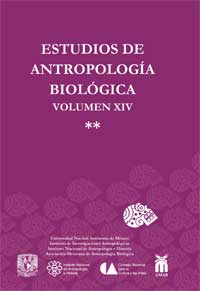Sistemas sexo/género “matriarcales”: bijagó (Guinea Bissau) y zapoteca (México)
DOI:
https://doi.org/10.22201/iia.14055066p.2009.27249Keywords:
matriarchy, Zapotec woman, Muxe, Bigajó woman, Guinea BissauAbstract
The social interaction between genders has been modified historically, treating itself about a relational system that it changes according to the social, economic or cultural coordinates of every epoch and concrete space. Two singular socie- ties exist where the woman is the protagonist of the social life and the relation of gender is exceptionally horizontal: the indigenous city Juchitán’s Zapoteca, located in Tehuantepec’s Isthmus (Mexico) and the communities Bijagó, ó, seated seated in the archipelago of the islands Bijagó (Guinea Bissau), where some authors have managed to affirm that matriarchal systems exist. With this incipient comparative study (the fieldwork stopped being realized in May, 2007), inside the area of subject matters around the gender, one tries to think about the reasons that have determined that between these societies the woman possesses a significant relevancy.
Downloads
Downloads
How to Cite
Issue
Section
License

http://creativecommons.org/licenses/by-nc-nd/4.0/

